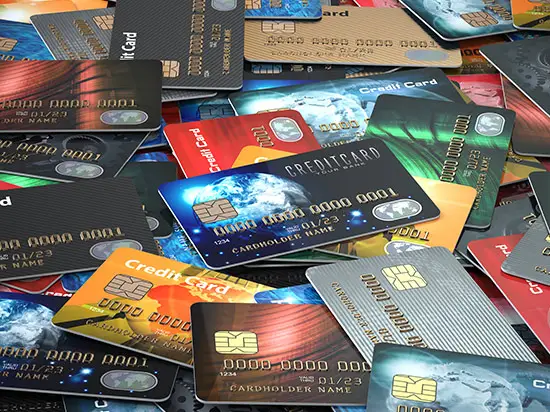Using Credit Responsibly

Having credit extended to you is not only a powerful spending tool, but it's become a necessity in today's world. It's easy to misuse credit and simple mistakes can end up costing you a lot in the future. Maintaining a good credit rating is not difficult, but there are certain things you must always do to maintain good credit and, ultimately, save a lot of money.
Understanding the Cost of Credit
Credit can be a great financial tool when it is used wisely. Many times people use credit irresponsibly. Credit cards become a problem when we purchase items on impulse, buy things we cannot afford, or live a lifestyle that is way above our current income.
It is important to get in the habit of using credit responsibly. The first step in establishing this habit is to understand the cost of credit. Did you know that if you had a balance of $500.00 on your credit card and only paid the minimum payment every month, it would take you almost seven years to pay it off?* The total interest would end up costing you $404.64. That means your $500.00 purchase on your credit card actually cost you $904.64! When you make a purchase on your credit card, an Annual Percentage Rate (APR) is charged. An APR is the percentage rate calculated on a yearly basis. Some banks have higher APRs than others. Before you apply for a credit card, find out what APR the bank is charging.
Being responsible with your credit means living within your means and not spending beyond what you can afford. When you use your credit card, keep an index card in your wallet and write down the purchases you make. That way there will be no surprises when your credit card statement arrives in the mail. You will also be able to keep a handle on what you are spending. Make sure you are charging only what you can afford to pay.
Be cautious of the discounts that many stores offer if you sign up for their credit cards. Have you ever been to a clothing store where the clerk asked if you would like to open up an account and save ten percent on your purchase? Those cards usually carry high interest rates and, in the long run, will cost you more than the ten percent you saved on your initial purchase. If you choose to apply for one of these cards, be sure to inquire about the interest rate and grace period.
Always pay off your credit cardbalance in full every month. Since you will already know the balance due before you get your statement (because you wrote down your purchases on the index card), put money aside to pay the bill. When you get the credit card statement, pay it on time. By paying off your credit card balance in full and on time, you should be able to avoid interest charges and late fees.
If you are having trouble disciplining yourself to pay off your balance every month, consider getting a card that requires you to pay the full balance every month. Get in the habit of using credit responsibly while you are young and it will help you in your future.
*Figure is based on minimum payment of 3% of balance and 1.75% interest per month; may vary by bank.
